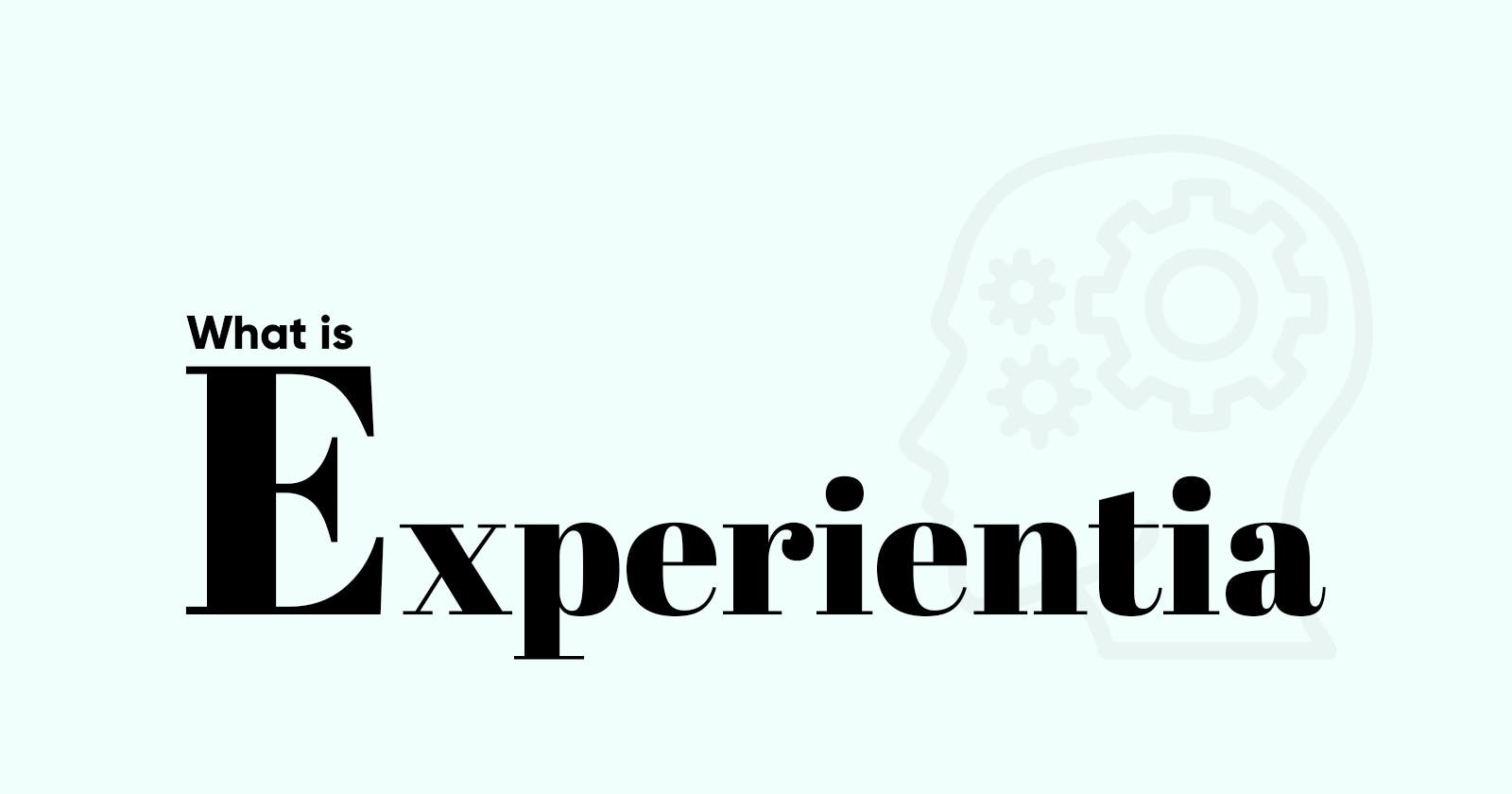What is Experientia?
Physics isn't hard, you just have been taught in awful way
Table of contents
No headings in the article.
IBM acquired Red Hat, the makers of Red Hat Linux and other open source software for 34 Billion USD for what essentially you can rip off on GitHub for free.
In my previous article, I mentioned creating a private firm to empower everyone to do their independent research without the need of any university but I described it vaguely. Well, this time I want to explain all its details i.e what are the challenges and how can we solve them.
First, I want to give a brief overview of people's perception of physics and the research world (or at least what I think it is). When Nasa launched JWST in space, everyone was waiting to see how good it was and when Nasa released the first few images on social media, it received millions of views and likes. The show Cosmos by Nat Geo has been one of the most phenomenal shows of all time which got millions of people to get curious about space. There are many more such examples and it's the deep primal instinct to know why we are here and where we came from. Despite all of it, many people find physics or academia very challenging and very few people go on to invest their time and energy in it. But, why is that?
Being a self-taught developer myself, I truly love the open-source culture and most importantly the ecosystem that we have. It is what allowed me to know and write software without having any educational degree. I mean there are a ton of tutorials on how to build an app, make AI models, etc. Plus everything is documented well in the open source community which makes it easy for us to build things easier and faster. But it wasn't the case from the beginning. In 90's many IT firms had to write their own tech stack and compilers to build their products. Not only was this tedious and time consuming but also very expensive. Soon, the birth of open-source tech like Linux and others made people realise that it's better to collaborate with people and build a common solution for all which not only saves their time and money but drastically increases productivity. Many people have gone on to offer complimentary services and support to enterprises on their open source products which allowed them to maintain it sustainably. The success of Blender and Red Hat is one of the countless examples that you can find everywhere.
Now what does this do with making people excited about physics? First, we need to look at the aspect of the entry barrier. Now there is a limited number of good reputable colleges in every country which mean even if all the students want to go there and learn new things, they can't. Most of the universities are very expensive to build and sustain and often require grants and govt. funding. Their influence is also very limited as they operate offline and they cannot scale widely which means we are leaving enormous opportunities on the table as very few people get the opportunity to create new things. Sometimes even researchers have to compete amongst themselves for research funding which results in a zero sum environment. Even Lex Fridman mentions it in his video - Elon Musk: Advice for Young People | Lex Fridman Podcast Clips.
So how does Experientia fit in this aspect? To be clear we are not meant to be a replacement for university and neither our goal is to compete but rather collaborate and create open opportunities for everyone.
Experientia aims to empower everyone to equip themselves with the right information and tools to do their independent research and contribute to the well being of humanity.
Now the question remains how and what are we gonna do? There are essentially 3 pillars of Experientia to achieve this vision
Research and Journalism
Media Production
Comprehensive tech stack
Let's try to understand how we want to approach it. Personally, I want to build this organisation without any VC or Angel funding so sustainability will be crucial in the first few years. For any business to survive it needs to have a sizeable distribution. So first we want to tell the stories of how things are made or get created. Normally in textbooks, the context is very focused on the subject eg. this theory was flawed and was later corrected by XYZ but most of us don't know why it was created, what's the detailed history behind it and how it influenced the world.
At the time of writing this article, I'm researching on how light Bulb invented Quantum Physics, how the Paxos algorithm was sort of inspired by Einstein's Relativity and how it runs today's modern Datacenters.
Initially, we want to package all of it in a good storytelling video production format across YouTube and other social media like what Johnny Harris, Veritasium, Real Engineering, ScienceClic, etc. are doing. After when we get a sizeable audience and especially their trust, we would like to create in-depth study material on a wide variety of Astrophysics and potentially more domain in future. For eg. Nasa has Terabytes of public archieve be it in GIS, satellite data and imagery, etc. We can take this data and educate people on this is how scientists do their analysis, this is how we can use AI/ML to get the image of black hole. Again, it's just an one simple example but the application can go beyond it and we also intent to create good documentation and arrange information neatly as right now there's no-one who is doing this on a larger scale. With this, our aim is to shorten the learning curve of physics.
Talking about the third pillar of creating a tech stack, I believe this is where we will earn majority of our revenue. Education alone take can only take you so far ahead and when you start working you need tools to simplify your life. Take for eg. reading or reviewing research papers. The problem with research papers is it's hard to find what you want unless you've been told to access specific papers. Especially for beginners, it's very hard to read research papers are they are written in extremely technical terms. Forget about common person even getting the gist of it. So now, what if we aggregate all those papers and create a search engine with GPT like integration that not only gets you the data for what you need but also explains you on different tiers like high school, undergrad, Ph.D., etc. and also help everyone to navigate amongst peer review. Plus, our system will automatically suggest a guided and structured path on how to master a specific topic. Yes, we'll too make our own content for it to make it more relevant.
To elaborate on it, Publishing houses and Journal like Nature, Wiley, Taylor and Francis, Springer, etc. are notoriously famous for charging researchers and faculty 1000's of dollars but to publish a 5MB PDF which doesn't even cost 1 USD to store lifetime and the business model of them is quite predatory as researchers have limited distribution to showcase their work. We have a better model where the papers are automatically circulated algorithmically instead of letting human bias creep in. It's kinda like your Instagram feed where the content served to you automatically gets updated based on your activity. We'll also give you a powerful analytics engine on how your paper is being accessed all around the globe so that researchers get informed feedback which is vastly better than a preprint server like ArXiv. In this way, more people's work can be appreciated and recognise thus progressing faster and substantially remove the inefficiency in academia.
We can also create frameworks for specific use cases. One of the things that I found is there are many professors out there who know their thing but don't have a good online presence so that people can interact with them. So, what if we can create a centralised platform where we connect everyone including universities, students, faculties and physics enthusiasts making an overall ecosystem that way ideas can flow faster and everything can be easily searchable.
I've just started to learn about how academia works and overall our vision is to create an end-to-end ecosystem where anyone can learn and contribute to each other. Basically, we wanna be like an AWS for Physics and academia in terms of tech products and solutions. Also, connecting physics R&D with real world engineering problems as fast as possible. For example, we have known the concepts of linear algebra, calculus for centuries but it was only in the past 70-80 years we got to use it to drive the pixels on the screen, create AI/ML models, etc.
That's basically a brief theme of what we are trying to do with Experientia. If you have any suggestion or feedback, please let us know in the comment section. We thank you for reading this article.

